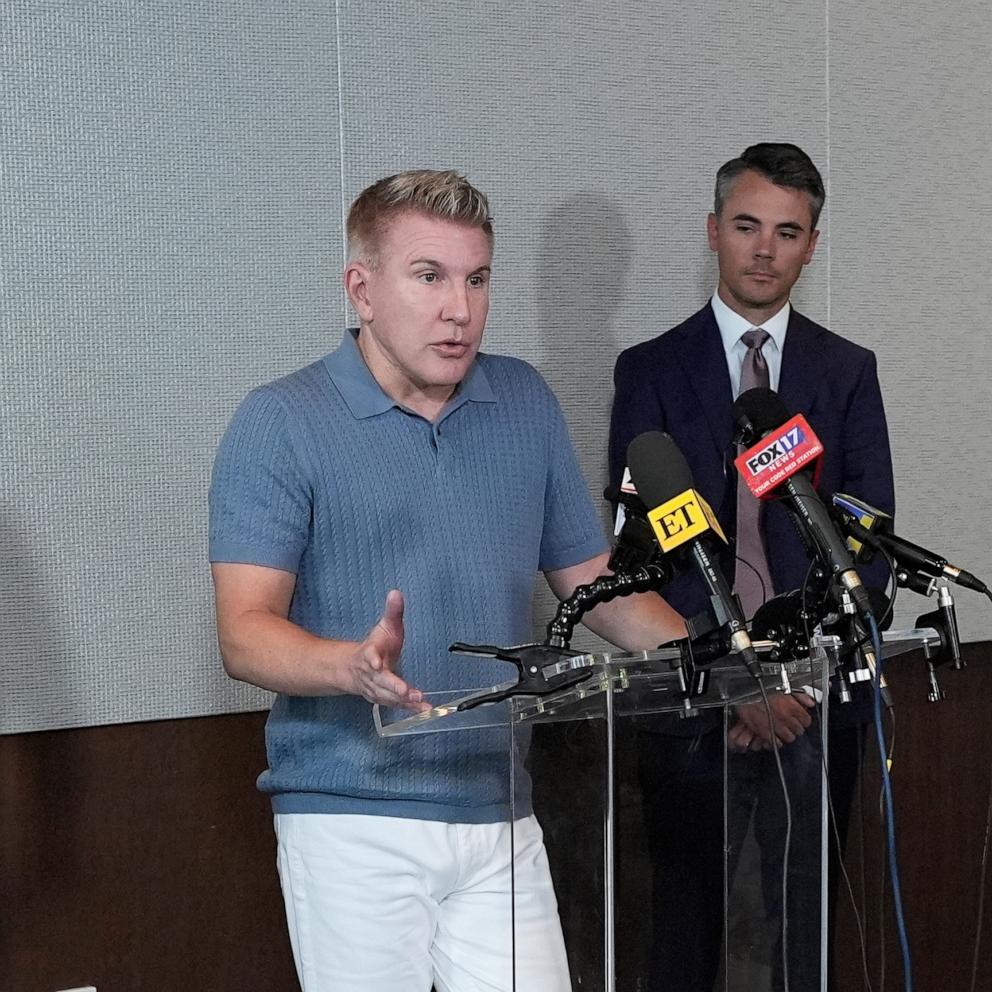RFK Jr. to tell medical schools to teach nutrition or lose federal funding
Health Secretary Robert F. Kennedy Jr. said he plans to tell American medical schools they must offer nutrition courses to students or risk losing federal funding from the Department of Health and Human Services.
Speaking at an event in North Carolina in April, Kennedy lamented, "There's almost no medical schools that have nutrition courses, and so [aspiring physicians] are taught how to treat illnesses with drugs but not how to treat them with food or to keep people healthy so they don't need the drugs."
He added, "One of the things that we'll do over the next year is to announce that medical schools that don't have those programs are not going to be eligible for our funding, and that we will withhold funds from those who don't implement those kinds of courses."
The idea, which Kennedy mentioned in passing at an event focused on plastics in the environment, lacks details but has drawn optimism from some nutrition experts who have for years sought ways for medical schools to teach more nutrition content.
An HHS official told ABC News that Kennedy "is committed to understanding and drastically lowering chronic disease rates and ending childhood chronic disease, which includes fresh thinking on nutrition and over-reliance on medication and treatments."
The official did not respond to requests for more information about Kennedy's plan, like whether he would require medical schools to follow a specific curriculum. Nor did the official say whether Kennedy has begun speaking with medical schools about the issue.
A study published in the Journal of Biomedical Education in 2015 surveyed 121 American medical schools in 2012-2013 and found that medical students spend, on average, only 19 hours on required nutrition education over their four years.
This does not account for education during residency or fellowship training after medical school, or continuing medical education required throughout a doctor’s career to maintain a medical license or board certification.
Those numbers have frustrated some nutrition experts, who argue doctors should focus more on preventing diet-driven conditions like obesity and diabetes and less on prescribing drugs that treat the problems.
"I think there's a great sense of urgency that we have to do something about this," said Dr. David Eisenberg, a professor at the Harvard T.H. Chan School of Public Health, who told ABC News that requiring nutrition education at all medical schools is "long overdue."
"I think the public imagines that physicians are required to know a lot more than they are trained to know about nutrition and giving practical advice about food to patients," added Eisenberg.

When presented with Kennedy's threats to withhold funding, some medical schools reached by ABC News said they already offer sufficient nutrition education.
"We have an extensive nutrition curriculum as part of our medical school training," Sarah Smith, a spokeswoman for Weill Cornell Medicine, said in an email.
A spokesperson for the University of North Carolina School of Medicine touted the school's Department of Nutrition, which the spokesperson said is "recognized as a global leader in research and training, and is unique in that it is the only nutrition department in the U.S. that is situated in both a school of public health and a school of medicine."
A representative for the Association of American Medical Colleges, which counts more than 170 medical schools among its members, declined to comment but told ABC News that an e-survey of medical schools the group conducted last year found that every school that responded reported "covering nutrition content in some form."
Still, the 2015 study, conducted by two researchers from the University of North Carolina and one from Harvard, painted a damning picture of the state of nutrition education at America's medical schools.
"Many US medical schools still fail to prepare future physicians for everyday nutrition challenges in clinical practice," the authors wrote.
Dr. Jo Marie Reilly, a professor at the University of Southern California's Keck School of Medicine, told ABC News that since the 2015 study (the most recent "scoping review" of medical schools' nutrition offerings, she said), medical schools have gradually begun offering more nutrition education.
The problem, though, according to Reilly, is the absence of a consistent set of standards for medical schools to abide by.
"Every school has got their own thing," she said.
That could be changing: Reilly and Eisenberg are among a group of medical and nutrition experts who last year published proposed recommendations in JAMA Network Open for a national curriculum, which would involve 36 "nutritional competencies" for medical students to meet.
"Nothing before this had said, well here's what we want [medical students] to know, this is what we think we should teach. Now we have those," Reilly told ABC News.
"We're moving in the right direction, but we have quite a ways to go," she said.
Kennedy has long spoken of the need to address chronic disease through changes to what Americans eat.
Withholding or withdrawing federal funding from medical schools, if HHS were to do so, would follow similar moves from departments across the new Trump administration.
This spring, HHS was among several departments which canceled grants to Columbia University in protest of what it called the school's "continued inaction in the face of persistent harassment of Jewish students." The university said it planned to work with the federal government to restore its funding.




